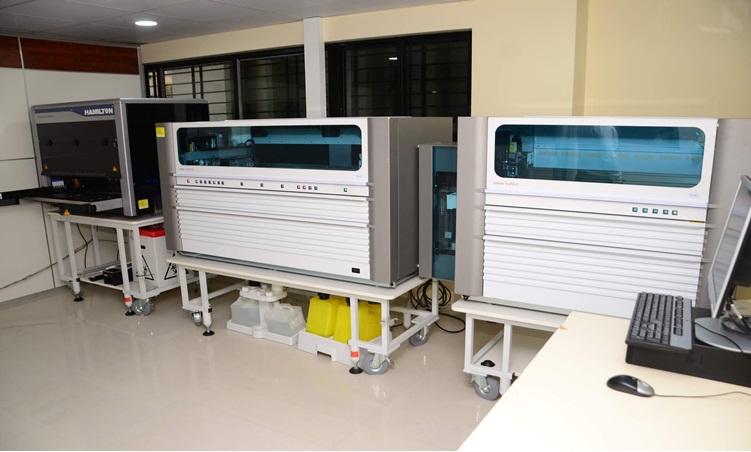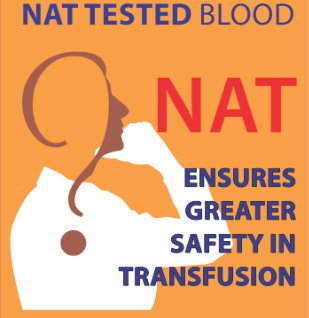About NAT
"NAT Tested Blood Is Safest Blood"

What is NAT ?
NAT means Nucleic Acid Amplification Testing (NAT).
Nucleic Acid Testing (NAT) in Blood Bank is a molecular method of screening blood donations for Human Immunodeficiency Virus (HIV), Hepatitis B Virus (HBV), Hepatitis C Virus (HCV). It is a highly sensitive technology that directly detects viral DNA or RNA.It detects the presence of virus earlier in an infection than serologic methods. It has helped in decreasing the window period of different transfusion transmitted infections & helped to reduce their transmission and thus provided an additional layer of blood safety.
At Dr. Hedgewar Blood Bank, Nagpur, we have NAT Laboratory where Nucleic Acid Testing is performed on Cobas S201 Taq Screen MPX (Roche Diagnostic, USA) and Real Time Polymerase Chain Reaction (RT-PCR) technology is used for simultaneous detection of Human Immunodeficiency Virus-1 (group M and O) RNA, Human Immunodeficiency Virus -2 RNA, Hepatitis C Virus RNA and Hepatitis B Virus DNA.
 Why NAT ?
Why NAT ?
- ➢ High prevalence of the viruses in the population.
- ➢ A significant number of window period donations can be identified by NAT.
- ➢ Detects the presence of pathogenic agents earlier than serologically-based methods.
- ➢ Prevent transfuion - transmission related infections(TTIs).

 "NAT Tested Blood Is Safest Blood"
"NAT Tested Blood Is Safest Blood"
- ➢ NAT was enforced in the Blood Bank system to ensure additional layer of safety in the blood supply.
- ➢ It can detect acute viral infections during the 'window period', that are not detected by the serological screening methods.
- ➢ NAT detects the presence of viral infection by directly for viral nucleic acids.
- ➢ NAT shortens this window period, therebby offering blood centers a much higher sensitivity for detecting viral infections.
- ➢ Given the impact that NAT can have in lowering the risk of TTIs, many countries employ NAT testing as a complement to traditional serology testing, performing both to fully optimize the safety of their blood supplies.
- ➢At our blood bank during past 3 years, total 32,376 sero-negative samples were subjected to Nucleic Acid Testing and out of which 108 were found out to be reactive for TTI by NAT. Out of 108 cases, 6 were HIV, 95 were HBV and 7 were HCV reactive.
- For each donation we prepare 3 different components and issue it to 3 different patients. This way we have prevented 108 X 3= 324 patients from getting the infection by doing NAT.